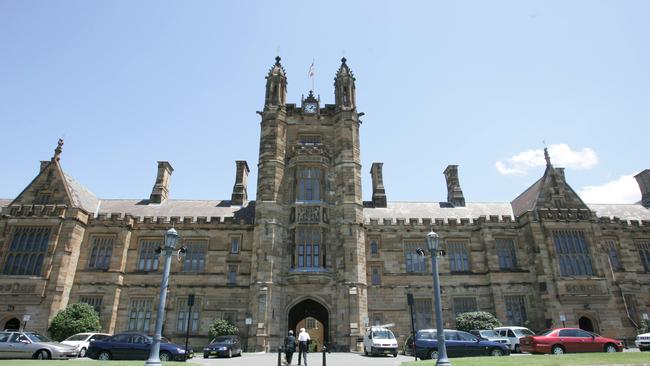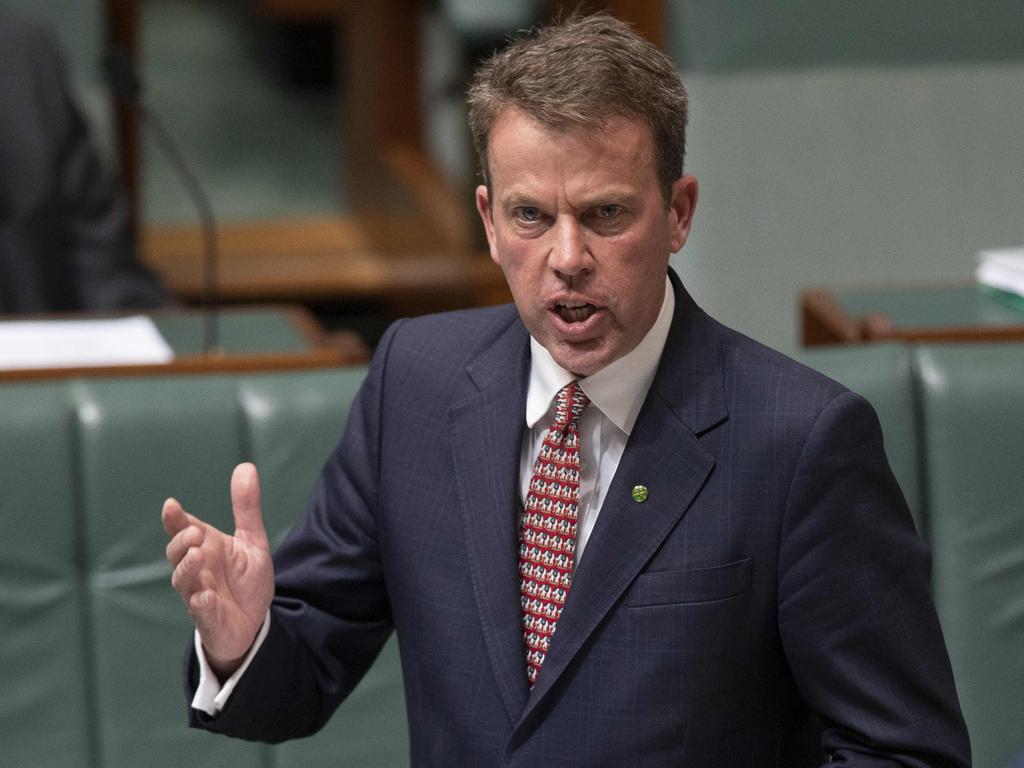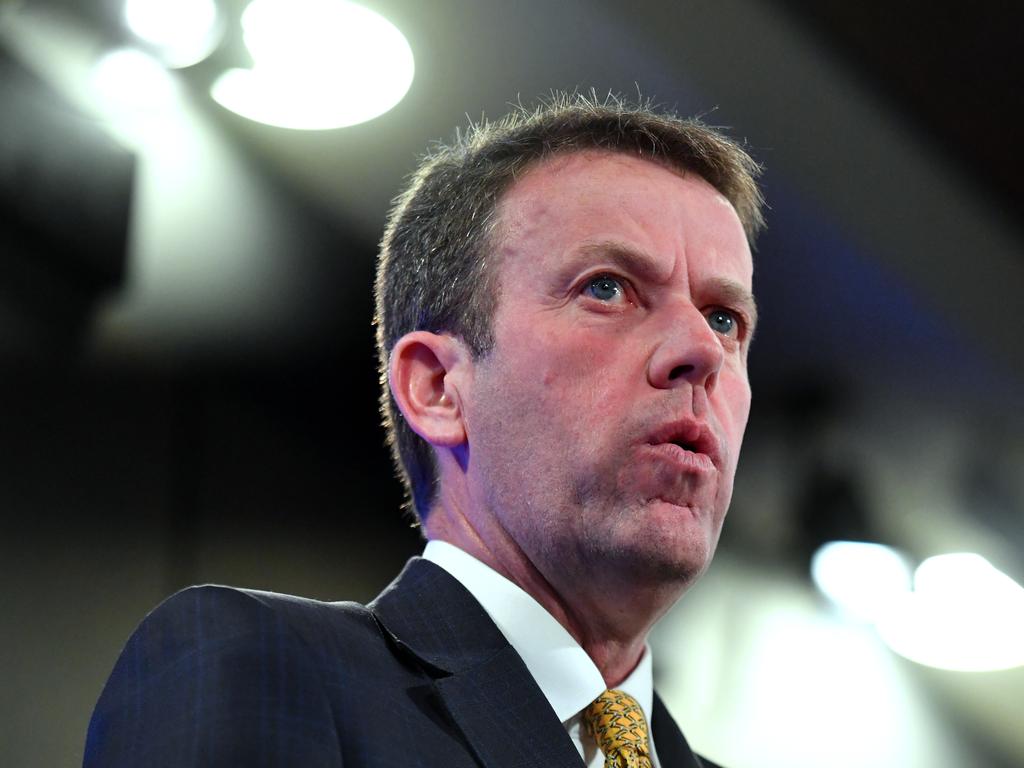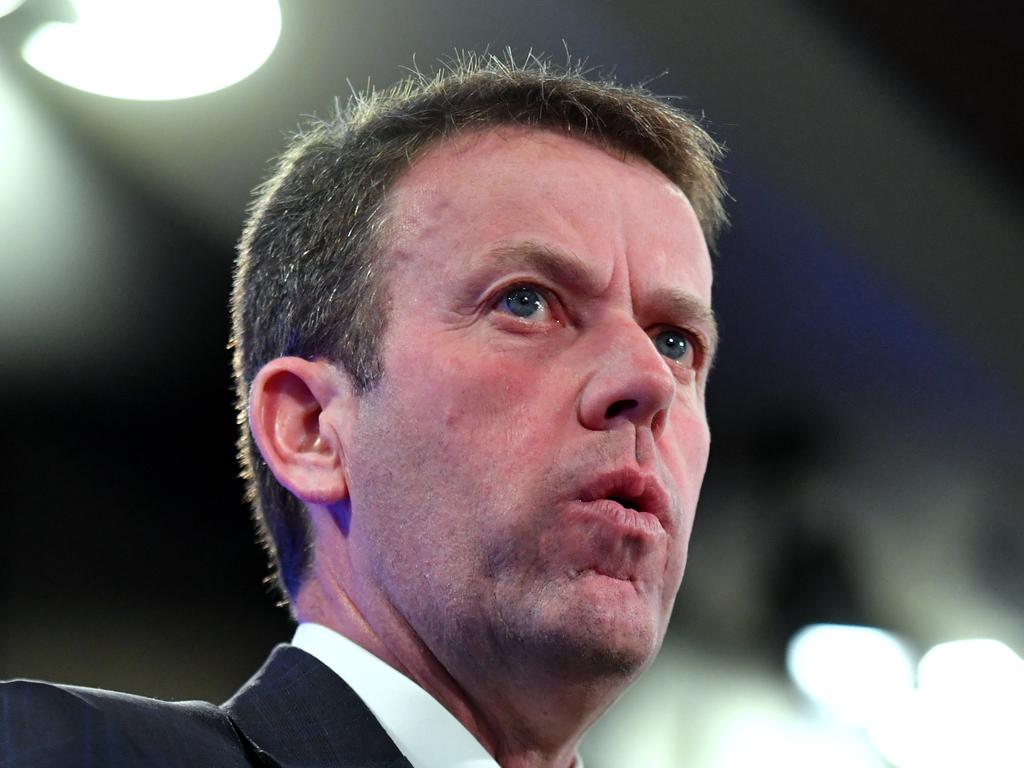Nation’s oldest unis lobby MPs to delay Dan Tehan’s radical overhaul of student fees
MPs are facing intense lobbying from the nation’s two oldest universities to delay the government’s radical fee overhaul.

MPs are facing intense lobbying from the nation’s two oldest universities to delay the Morrison government’s radical overhaul of student fees, as Education Minister Dan Tehan seeks to push his reforms through parliament before the October budget.
The higher education reforms – which will see the price of post-pandemic job creator subjects plummet, and the cost of law and humanities units increase by as much as 113 per cent – were due to pass the House of Representatives on Tuesday night, but still faces being delayed in a senate inquiry
Both the University of Melbourne and the University of Sydney have sent material directly to MPs on the Job Ready Graduates package this week, with the latter telling MPs in briefings seen by The Australian the reforms are too “radical to rush.”
“The student fee increases will effectively apply retrospectively for current Year 11 & Year 12 students, which is unfair,” the Sydney University note to MPs states.
“The package relies on pre-COVID-19 labour market forecasts, which are no longer relevant.
The government is sending misleading messages to students about where jobs will be after the crisis. There is no evidence of student price sensitivity when choosing courses.”
The University of Melbourne briefing told MPs that Mr Tehan’s reforms will cost universities $180m a year and would reduce places it can make available to prospective students.
“An inquiry, given the very short time allowed for consultation and the significant financial impact on universities, would be a reasonable step for the parliament to take,” the Melbourne note to MPs states.
“Victorian universities, for example, will lose $180m p.a. due to the changes and have fewer places available to address the expected surge in demand in the coming years.”
Mr Tehan is resisting attempts to send his reforms off to a senate inquiry as he wants to ensure the changes to higher education funding come into effect on January 1 as planned.
Tasmanian senator Jacqui Lambie, South Australian independent Rex Patrick, and Centre Alliance’s Stirling Griff supported a motion in the Senate on Tuesday to hold an inquiry.
While the motion failed, The Australian understands the three could seek to further scrutinise the bill via senate committees and reduce its chances of passing before parliament rises on Thursday.
The government has argued the reforms are needed to push students towards courses that will build a future post-pandemic workforce.
Liberal MP Katie Allen – a medical researcher and former honorary professor at the University of Melbourne – told the House the bill would allow students to reduce the costs of their degrees by mixing job creator units with their other interests.
“We need to better educate and train the next generation in subjects such as science and technology, so that we can grasp the opportunities they present,” she said.
“The changes are focused at a unit, not a degree level. This means, students studying a bachelor of arts can reduce the total student contribution by choosing electives in subjects like math, English (and) science that employers want in a prospective employees.”








To join the conversation, please log in. Don't have an account? Register
Join the conversation, you are commenting as Logout